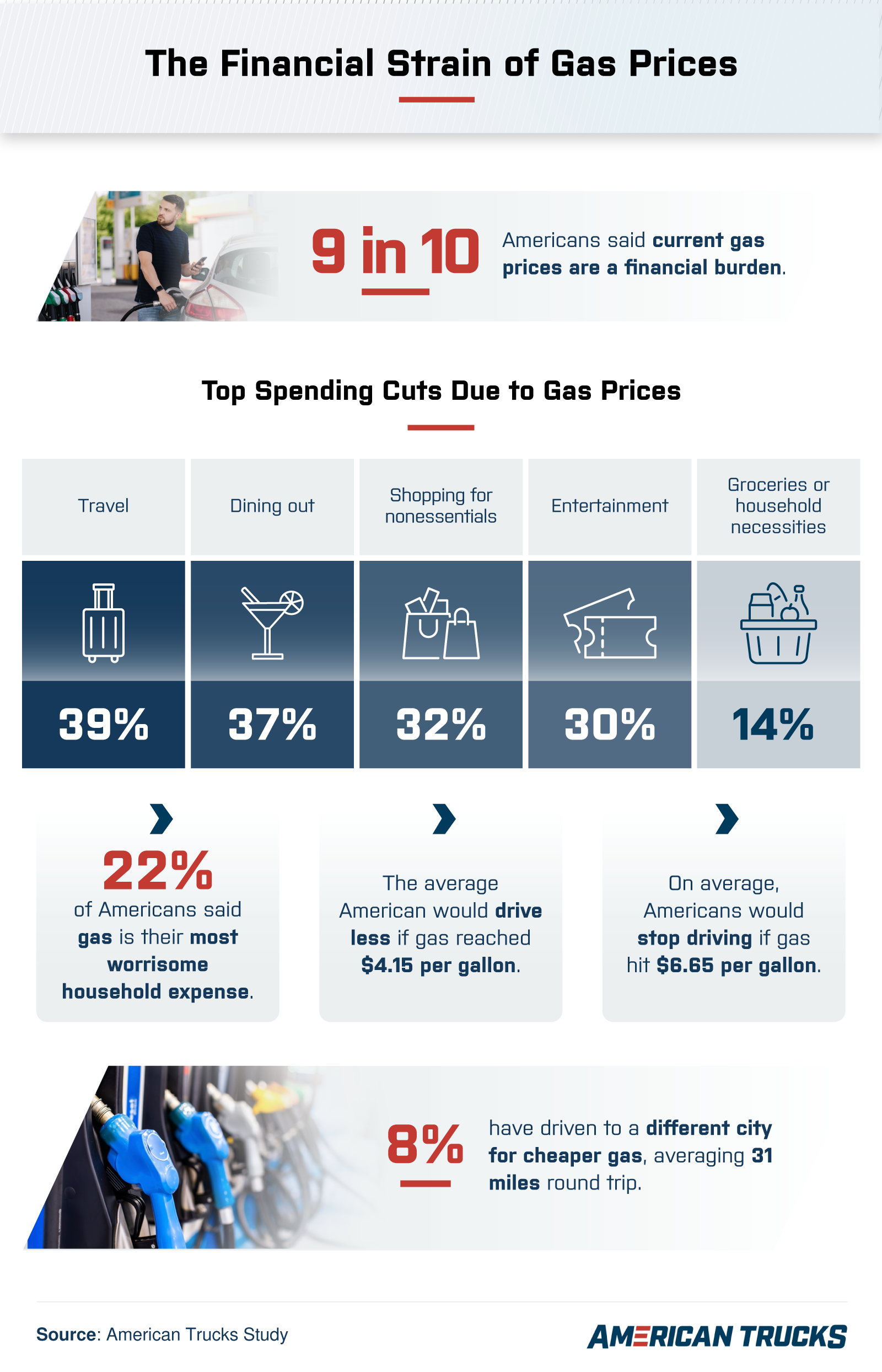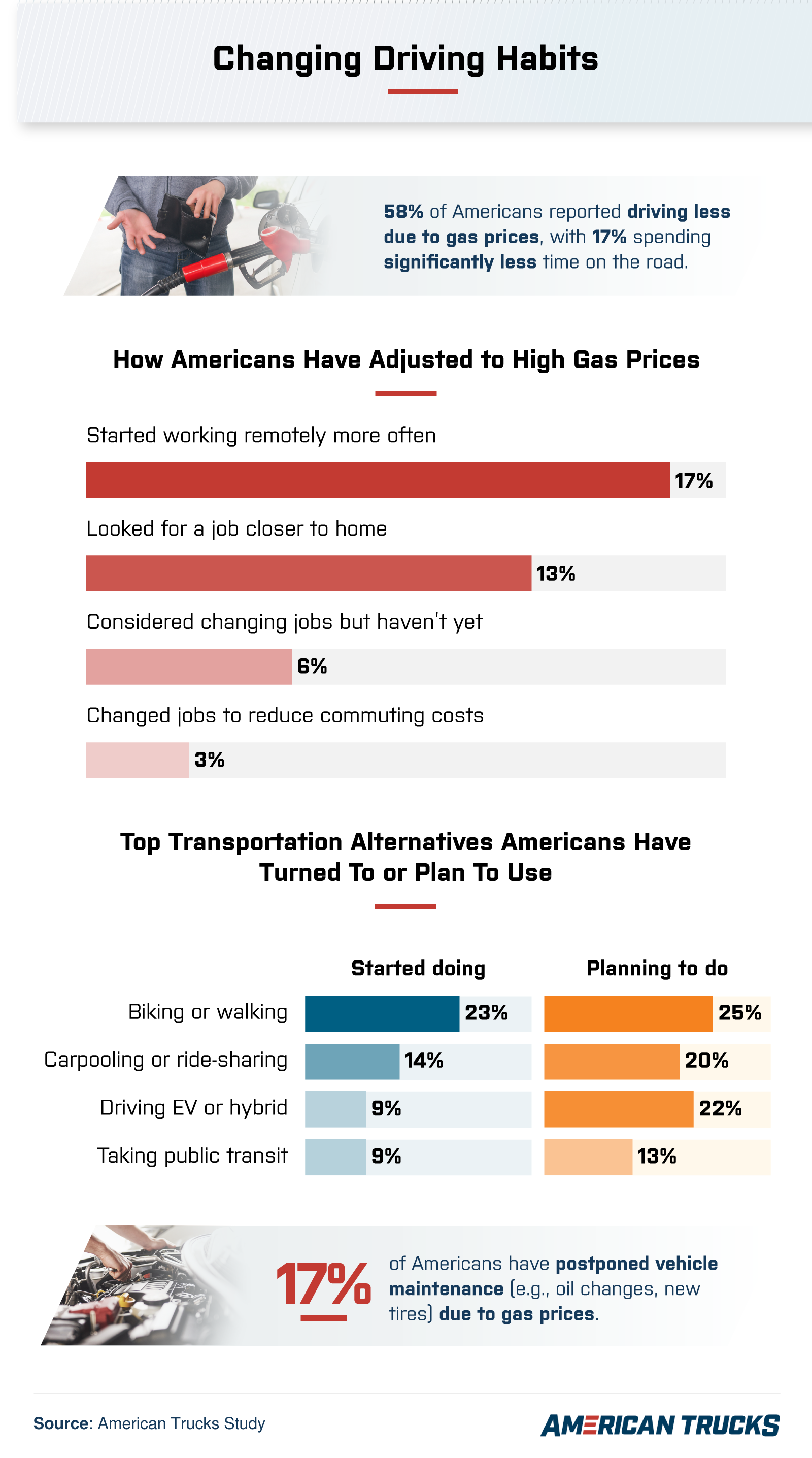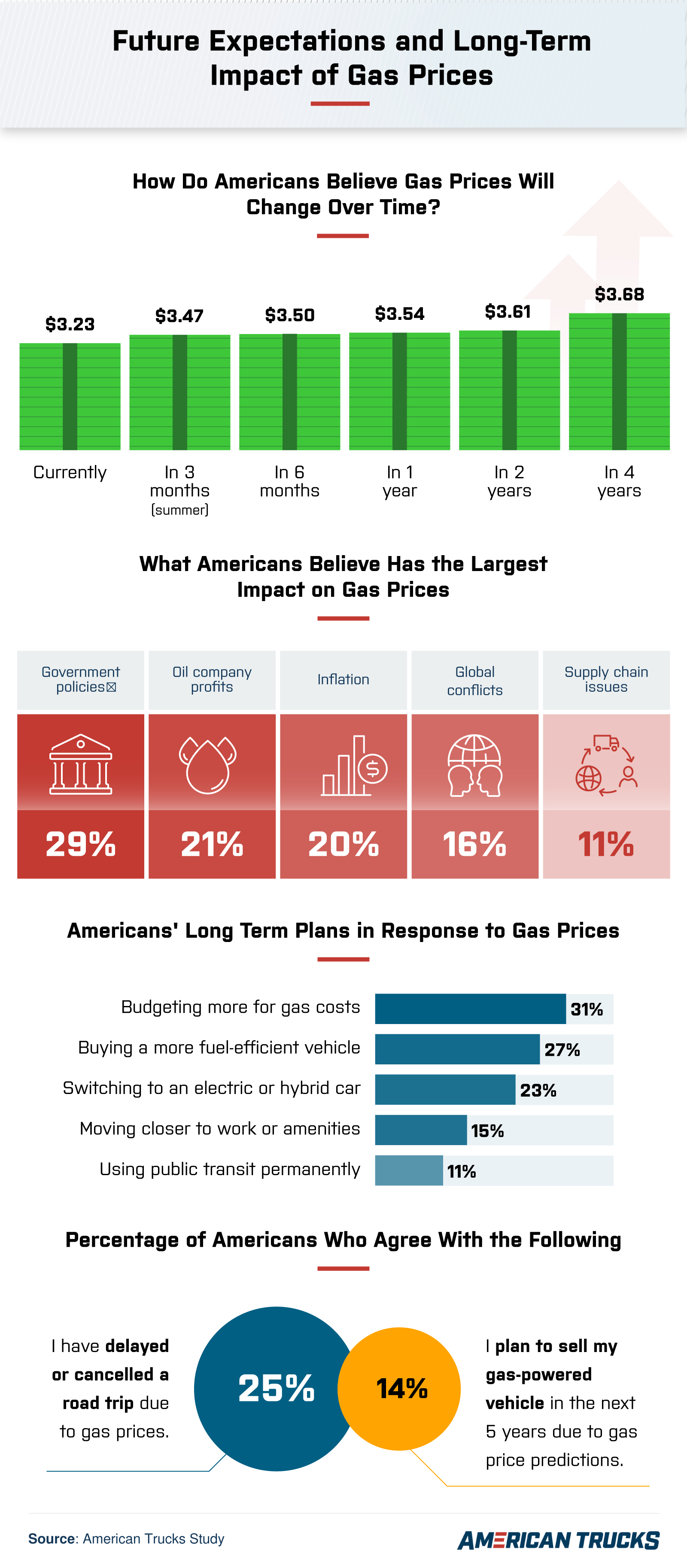Hotspots for Gas Price Anxiety and Green Vehicle Interest
Gas prices rise and fall, but some areas feel the squeeze more than others. Search trends show where people are most worried about fuel costs and where interest in electric vehicles (EVs) and hybrids is growing.
Nevada had the highest gas price anxiety of any state based on their online searches. This means its residents are more concerned about fuel costs than Americans in any other state. The states showing the most interest in EVs and hybrids per capita were Vermont, California, Delaware, Nevada, and Washington.
Among the U.S. cities in our study, people in Cleveland, Ohio, had the most gas price anxiety, followed by those in Las Vegas. Cities with the highest interest in EVs and hybrids per capita included Atlanta, Miami, Orlando, Seattle, and St. Louis. People in these cities were looking for fuel-efficient options, suggesting more drivers are exploring fuel-efficient options.
How Gas Prices Are Changing Spending and Driving
High gas prices are forcing many Americans to rethink their budgets. To keep up with fuel costs, people are cutting back on travel, dining out, and even considering job changes.

Most Americans (90%) said current gas prices are a financial burden, with millennials (92%) feeling it the most and Gen X (87%) the least. To offset gas costs, people have most often cut back on travel (39%), dining out (37%), and nonessential shopping (32%). For Gen Z (43%) and millennials (39%), dining out was the first thing to go.
For 22% of American households, gas prices were their biggest financial worry, with Gen Z (27%) the most concerned. On average, drivers said $4.15 per gallon is when gas becomes too expensive, forcing them to change their routines. Baby boomers had the lowest price limit ($4.02), while Gen X had the highest ($4.20). Politically, Democrats were willing to pay more than Republicans before adjusting their habits ($4.26 vs. $4.05).
If gas hit $6.65 per gallon, the average American would stop driving. Gen Z would hit that limit at $6.23, while Gen X would hold out until $6.90. Some drivers are already going to extremes to save: 8% have traveled to another city for cheaper gas, averaging a 31-mile round trip. Gen Z was the most likely to do so (9%) and also drove the farthest round trip (38 miles).

Higher gas prices led many Americans to cut back on driving. A total of 58% said they were on the road less, and 17% made major cuts. Among Gen Z drivers, 67% drove less because of fuel costs. Some also put off car maintenance to save money. In total, 17% delayed tasks like oil changes or buying new tires, with Gen Z (27%) the most likely to do so.
Rising fuel costs also influenced career choices: 3% of Americans had already switched jobs to shorten their commute, and 6% were considering it. Gen Z (13%) and millennials (5%) were the most likely to be thinking about a job change. For some, remote work became a solution. A total of 17% worked from home more often, with Gen X leading the way at 19%.
To save on gas, some drivers (9%) switched to electric or hybrid vehicles, and 22% said they plan to. Millennials were the most proactive. About 10% had already switched, and 25% intended to. Gen Z was the least likely to make the change, with just 6% driving an EV and 19% planning to in the future.
Gas Price Predictions
Many Americans believe gas prices will continue to rise, affecting both their finances and long-term plans. See how expectations vary by generation and political affiliation.

Americans predicted gas prices would rise by 14% over the next four years. Millennials expected the biggest jump, estimating prices would reach $3.75 per gallon, while baby boomers thought gas would hit $3.52. Democrats anticipated a higher increase than Republicans ($3.96 vs. $3.33).
Government policies were seen as the biggest factor influencing gas prices, with 29% of Americans citing them as the main cause. Gen Z was the most likely to hold this view, with 33% saying policies had the greatest impact. Inflation was another major concern, especially among millennials, 22% of whom named it as the top factor.
Higher fuel costs have already changed travel plans. A quarter of Americans have delayed or canceled a road trip, with baby boomers the most likely to do so at 30%. Some drivers (14%) planned to sell their gas-powered vehicles within the next five years due to fuel costs. Millennials were the most likely to consider selling (16%), while Gen Z was the least (9%). Democrats (16%) were also more likely than Republicans (9%) to have plans to sell their gas vehicle.
The Road Ahead
Rising gas prices have led many Americans to rethink their driving habits, spending, and long-term plans. Some have cut back on travel or delayed car maintenance, while others have made bigger changes, like working remotely or switching to an electric vehicle.
For those feeling the financial strain, small adjustments can help. Reducing unnecessary trips, carpooling, and keeping up with maintenance can improve fuel efficiency. Exploring work-from-home work options or finding a shorter commute may also ease the burden.
Methodology
We analyzed Google Trends search data over the last year to identify which states and cities have the most gas price-related anxiety and green vehicle interest. We specifically gathered search volume for the terms "cheap gas," "cheap gas near me," "gas prices," "electric car," "electric vehicle," "hybrid car," and "hybrid vehicle" for each of the 50 states and the 99 most populous US cities.
Additionally, we surveyed 1,005 Americans who own a car about their experiences with gas anxiety and future expectations. Among respondents, 11% were baby boomers, 29% were Generation X, 50% were millennials, and 10% were Generation Z. Politically, 42% identified as democrats, 28% identified as independents, 26% identified as republicans, and 4% had no political affiliation.
About American Muscle
American Muscle is a leading performance parts and accessories retailer offering a wide range of products to enhance the style, performance, and functionality of iconic muscle cars.
Fair Use Statement
You may reference these findings for noncommercial purposes as long as you provide a link to the original article.




